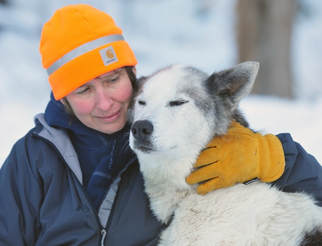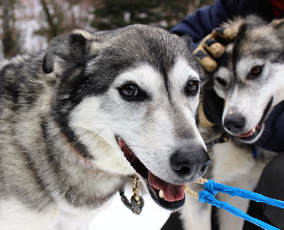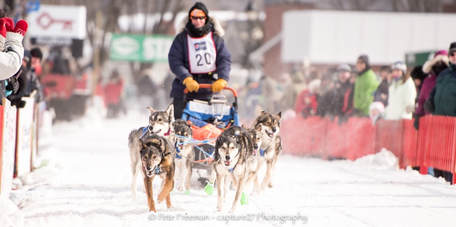|
People in northern regions have used dog teams for hundreds--perhaps thousands--of years, as essential parts of life: transportation, hunting and protection. In the last two centuries, huskies have played crucial roles in human exploration at both poles, and in military maneuvers in the Canadian arctic and the French Alps. Over the last fifty years, the services traditionally performed by sled dogs have been steadily relegated to mechanical means like snowmachines and bush planes, and dog team driving has become primarily recreational and educational.
|
|
Our dogs are not kept or run as an essential aspect of our safety or economic well-being. They are part of the family. Our relationships with them are based on mutual trust and respect, and we all learn from each other. We run them, train them, race them and camp with them because they clearly thrive on the adventure every bit as much as we do! Guiding tours with them from 2002-2020 was an opportunity to share this thrill with others. The term we use to describe them, "sled pets," denotes that we think of them as not merely companion animals nor working dogs, but something that combines the best of both relationships, and is so much more.
|
|
"Where else can you find personalities who are consistently eager to work hard and play hard, who easily forgive the mistakes of others, and who respond positively to challenge?"
|
While much of dog training is like teaching, we have found that the dogs have much to teach us. Even after twenty years, we are still learning, not only about working with dogs and mushing, but also unpacking elements of teamwork, communication and respect that transcend all species boundaries.
|



